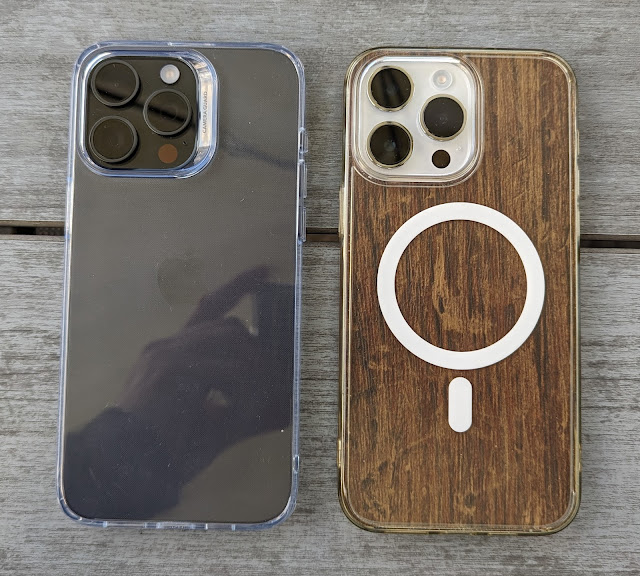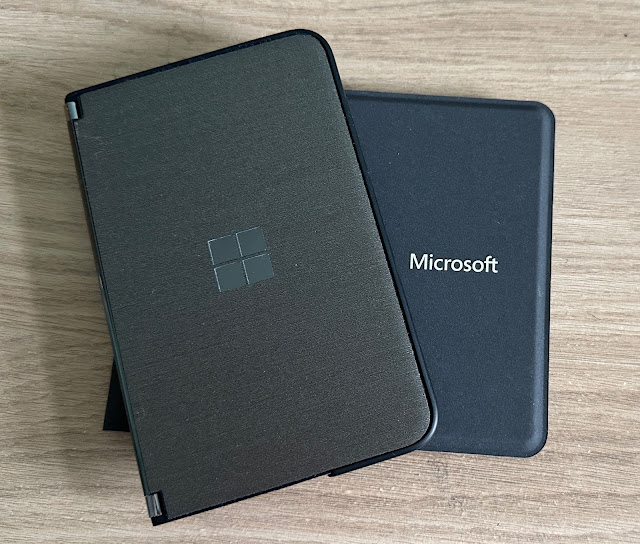Android Vision Abandoned! (Pixel Fold et al)
It's an old, old story, of course. Boy meets girl, no wait... the OTHER old, old story.
Android device manufacturer has a vision produces a genuinely different, stunning piece of hardware, then gets swayed by misguided user complaints that "it's not close enough to all the boring stuff that's available elsewhere" and so compromises its vision in a redesigned version 2 that's nowhere near as 'pure' as the original.
And, as a result, often gets abandoned or forgotten.
I have some examples. I'll go chronologically. You may not have heard of the Planet Computers Gemini - an Android-powered landscape-first QWERTY clamshell phone that was simply stunning - I reviewed it here in Phone Show 340, so do go watch:
Yes this was a full smartphone, despite not having an outside display - a system of LEDs told you who was calling. If ever that happened - 99% of my device use these days doesn't involve phone calls! The Gemini was opened for almost everything, revealing the huge display and best keyboard on any mobile device - ever.
But yes, the vision was compromised by user 'complaints' that they wanted to see who was calling, and time and date - so Planet Computers made a version 2, the 'Cosmo Communicator', with an add-on external display and better camera. And yes, I reviewed this too:
To be fair, the main compromise was in extra bulk and weight, which in themselves weren't a showstopper for die-hard Gemini fans, so I'm going to stretch my central point a little here because Planet Computers carried on listening to users, who now complained that the external display wasn't large enough and could they have an outside screen that was as large as the inside one.
You can see where this was going. Planet then sacrificed all the elegance of the original hinged metal system in favour of a clunky - and even more bulky and fragile - plastic 'slide and bend up' system, in the Astro Slide. I only had a few hours with this, but did cover it in a YouTube Short:
So in this version 3 of the concept, the device was far thicker, far harder to open, and far (to my mind) less elegant.
The whole point of the original Gemini (and to an extent the Cosmo) was that you opened it to get things done - doing that was a statement of intent. In contrast to the average smartphone where content pops up night and day on an external screen, always distracting.
So Planet's original vision was diluted and then abandoned. This last word is particularly appropriate since Planet Computers did a terrible job (under, admittedly, less than ideal circumstances around Covid and worldwide supply shortages) at keeping its customers informed and then supplied. One might even say 'abandoned' again. Not good. Some people have been waiting over two years for their paid-for Astro Slide...
Suffice it to say that the trail is now cold, the very name Planet Computers something of a millstone, and the line of 'Psion' 5-keyboarded devices sadly now at an end.
Fast forward two years from the Gemini launch and we come to one of the biggest companies in the world, Microsoft, launching its own very different device. The dual-screened Surface Duo needs no introduction here, since I've featured it so often (and I still own and use one in 2025).
Like the Gemini, the Duo is designed to be used when folded open. Normally in 'book'/'tablet' mode. But the hinge also allows for the screens to be folded through 360 degrees into 'phone' mode, so that both are 'outwards' and then used as a traditional Android smartphone. The best of all worlds? I demonstrated all its modes in a Short here:
Arguably yes, though the biggest complaint about the Surface Duo (aside from the lack of NFC for Google Pay) from 'users' was that the single internal camera was underwhelming. So Microsoft made the Surface Duo 2, adding three traditional cameras on the back of one half, along with siting them in a camera bump. Which, naturally, stopped the screens being able to be folded all the way back into 'phone' mode.
The Duo 2 could still be used in this single-screen, single-width mode, but it wasn't elegant or pretty anymore. True, Microsoft did make the displays bigger, add NFC, add more RAM and a faster chipset, making the Duo 2 still compelling - hey, I bought one - but it was always a compromised device from the original super-slim, super-folding design.
As with the Planet example, Microsoft cancelled further development of the idea and their vision for dual screen devices ended with the Duo 2.
My third example is tangentially related - it's Google's original Pixel Fold, launched in 2023 and with its hardware loosely based on the Surface Duo, in that its aspect ratio and hinge system were almost identical. With an internal folding screen, however, there was no way it could fold back past 180 degrees (and in fact it was, comically, usually content with 178 degrees!), but that didn't matter since there was an extremely useable external touchscreen. I reviewed the Pixel Fold in a multitude of Shorts, here's my one month verdict, for example (browse my channel for more videos etc.):
Yes, the external screen was small and squat compared to most modern phones, but that was half the beauty - it could be navigated with one hand and delightfully compact, with the full, true landscape 8" tablet screen available on a simple hinge unfold. It was almost perfect. Super screens, super form factor, super cameras, super speed, and so on.
If ever there was a device not to mess with, this was it. But no, Google's Pixel Fold 2 (actually cumbersomely named the Pixel 9 Pro Fold) was a totally different device, with different aspect ratio and different hinges. Google had gone down the populist route and copied other manufacturers rather than doubling down on what I consider a unique and arguably superior device.
Which is not to say that the 9 Pro Fold is bad - it's just similar to every other folding phone and has no USPs. And I'll bet that a 10 Pro Fold next year looks almost identical - the squat, compact original is a thing of the past.
So again, we see Google abandoning a unique vision by bowing down to perceived 'popular' needs. And yet again robbing the world of a device that was noticeably different.
And the more this happens across the board, the more the phone world becomes monotonous and less interesting. I contend. Thoughts welcome!
PS. If you like my work then think about buying me a beer at paypal.me/stevelitchfield - thanks!


Comments